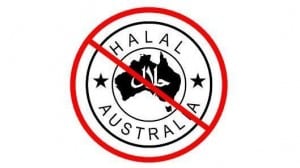
Reporter: Kerry Lonergan, www.abc.net.au
ANNE KRUGER, PRESENTER: Australian farmers have been defending their right to export live animals virtually since the trade began.
You may remember when former prime minister Malcolm Fraser and then NFF boss Ian McLachlan stared down union threats over sheep shipments to the Middle East in the 1980s.
The argument back then was based more on the impact on jobs in the meat processing sector.
More recently, the opposition has come from animal rights groups who argue the trade is unnecessarily cruel. And every so often they supply the mainstream media with unsettling images of the way some overseas customers handle Australian export sheep and cattle.
They are about to step up their campaign with fresh material gathered in Indonesia, one of Australia’s biggest live export markets.
This weekend, the industry has released its new global strategy following an independent review that is aimed at convincing end-users to lift their game.
Kerry Lonergan reports.
KERRY LONGERGAN, REPORTER: It’s a billion-dollar-a-year business. The live trade out of the north is critical to the economy across the top of Australia and beyond.
Much of the country from Kununurra to the Barclay Tableland is suitable only for cattle grazing. So with virtually no processing facilities from Townsville right around to Perth, there are no options – it’s export or close down.
CAMERON HALL, LIVECORP: So many people in remote and regional communities in northern Australia rely on the live trade – as some, or many, as their only source of income, and their only market, but others for a very significant part of their income.
So the impact would be massive. We know that the live trade adds 7.8, nearly 8 cents a kilo to all cattle sold across Australia whether they are going into the live trade or not.
KERRY LONGERGAN: So what’s the problem?
The weights issue with Indonesia is something the industry has always felt would be resolved eventually. The problem is lifting certain animal welfare standards in Indonesia.
Last year the industry, with support from Canberra, commissioned an independent report to check on welfare standards for Australian cattle sent to Indonesia and recommended improvements.
The panel, which included vets, feed lot and abattoir experts from Australia and the UK, had as its baseline the internationally recognised OIE or World Organisation for Animal Health standards.
Of course, the live trade is not just about cattle and not just about Indonesia. The live sheep trade already has experience with OIE standards.
Sheep exporters to the Middle East were given a pull through after the Cormo Express incident several years ago. The subsequent inquiry led to a massive injection of industry training money into the Middle East.
RON CULLEN, SHEEPMEAT COUNCIL: We think we have done a pretty good job in terms of changing animal welfare in the marketplace, and that is why we moved to developing these action plans for each specific market, and that will set some more measurable objectives.
I think, if anything, the lesson we learn is, that we have not been able to demonstrate in an objective way the improvements we have been making. So these action plans will hopefully do that for us.
And we’ve got people over in the Middle East, right now, who are talking to both importers and government officials about how we’ll get those action plans under way.
KERRY LONGERGAN: Now, Ron Cullen, could the live trade to the north learn anything from the sheep exporters?
RON CULLEN: I guess we’d like to think we both learn from each other and we’ve had a combined approach, in terms of developing these action plans. And industry needs to be sure that we’re all aiming for OIE standards – the World Health Organization for Animals.
Those standards are the sort of standards we ought to be able to meet in all of our marketplaces. So the action plans we will develop will be about having an idea of the whole chain system, so that each bit of the chain from discharge through to processing meets OIE standards.
KERRY LONGERGAN: The report on the Indonesian trade, which is publicly available – there will be a link to the report on the Landline website – included several ticks and neutral comments with recommendations. Almost inevitably, the panel was critical of certain practices within Indonesian abattoirs.
DR PAUL CUSACK, REVIEW PANEL MEMBER: Our greatest concern with processing was an instance where multiple cuts were required to sever the carotid arteries. Once the carotid arteries are severed at the point of processing, then the animal loses consciousness very quickly.
So that’s an issue that we identified. And the recommendation is that there be further training given to improve the skill, or the speed with which that single cut is administered. And that is as simple as having the correct equipment, sharp knives and a good approach and a good technique.
KERRY LONGERGAN: Two issues emerge here, the obvious one is training.
AUSTRALIAN TRAINER (Landline 2010): Because in Indonesia it is very hot, when they get sick with diarrhoea, like this one, they become dehydrated, so then they can’t fight the bacterial infection that is coming.
ROHAN SULLIVAN, NY CATTEMENS’ ASSOCIATION: Well, I think it will be given major priority. As you’re probably aware, Kerry, the review looked right through the market chain in Indonesia.
The main things that were found were that the animal welfare was found to be generally good throughout the chain, except for the last little bit, which is at the point of processing. And that is where most of the effort has got to be made into the future.
KERRY LONGERGAN: And it’s that point of processing which is, and will remain, the key issue in the live trade.
As Cameron Hall, LiveCorp CEO, acknowledges, it’s not simply a matter of telling Indonesian meat workers the correct procedure. Unlike Australia there are other factors.
CAMERON HALL: Look, I think the Indonesian people… The Indonesians have a long history, if you like, with animals and with processing. But they are – the Indonesian people are not cruel people.
The Indonesian people want to make change and want to improve things, and we have seen that, you know, quite significantly over the past five years – right at an industry level, at the facilities themselves, and also with the Indonesian government.
KERRY LONGERGAN: It is partly also cultural and religious. Is this part of the reason why they don’t stun them, often, before they are slaughtered?
CAMERON HALL: The stunning issue is a complex issue. And, it’s, I guess, it is a sensitive issue around three areas, cultural, religious and even legal.
We’ve been promoting stunning with the Indonesian industry and the Indonesian government over the last five years. And there is stunning in place in some facilities in Indonesia. And we’re working at the moment to increase that number and we will, by the end of the year, have more facilities stunning.
But, stunning is slow in its uptake and until recently, in many areas, it had been illegal to even have the equipment.
KERRY LONGERGAN: So is it possible to have animals that are stunned killed, and be confirmed as halal?
CAMERON HALL: Yes. Animals, even in Australia, are stunned and confirmed halal. But it is around working with the local religious authorities in Indonesia, which we are doing on an ongoing basis, and ensuring that they understand the science, and that the stunning process meets the religious beliefs.
KERRY LONGERGAN: One of the leading importers of Australian cattle is Dicky Adiwoso. He’s an Australian-educated vet, with firm views on the animal welfare issue within his own country. It must lift, he says, to world standards.
DICKY ADIWOSO, LIVESTOCK IMPORTER: Animal welfare is something that we have to- the values we have to impose on the people who are taking care of the animals.
From the time that it’s born until the end of their life, that we have to take care of them. It’s not the- people are looking at it differently at the beginning and here, and then we have to change our values, how we to do it in other countries.
We have to look at what is the global values of animal welfare, which we are trying to impose and bring the value.
KERRY LONGERGAN: Now, as mentioned, the export of Australian sheep to the Middle East has had its animal welfare issues.
But with the shorter distances, a very low shipping mortality rate, and the fact that cattle are generally tougher than sheep, the live trade to the north has, by and large, escaped sanctions for animal welfare issues.
But given the nature of animal rights activism these days, and given the economic importance of the trade, what might happen if, for whatever reason, the trade was stopped?
ROHAN SULLIVAN: Well, I think after we have picked ourselves up off the floor, it would be a disaster for our industry – well, for me personally, for my family personally, and I think would be a disaster for rural people in northern Australia.
Total turn off from the territory is about 600,000 head a year and there is about 300,000 head that goes to live export, and most of that to Indonesia.
So it is an absolutely vital part of our industry and, you know, on a personal level, for my own family property, it’s nearly 100 per cent of our turnoff goes to live exports. So without the live export trade we’d be finished, basically.
KERRY LONGERGAN: So with this review, which clearly points to ‘unacceptable by Australian standards’ processing routines in some Indonesian meat works, what’s next?
Cameron Hall says, more training for Indonesian meat workers is on the schedule, but training is just part of a much bigger agenda. I
CAMERON HALL: I think it’s part of the answer. There is a whole range of aspects that need to work well together. We are still talking about Indonesia that is a developing economy, and they don’t have as much investment into facilities, they don’t have as much infrastructure.
Many of the facilities don’t have power or coal chain, or all of those sorts of things.
So there’s a – I guess there is a broad range of things. But we know that at the point of processing – which is our most difficult area – we know that when the training is properly adopted and those people have the skills, that the welfare improvements are significant.
KERRY LONGERGAN: Now according to LiveCorp, the industry will be allocating up to $1 million a year for training and other animal welfare issues in Indonesia. This is a crucial part of the action plan for improved animal welfare conditions in all export markets, and follows the success of similar programs in the Middle East.
One final note on this story for the moment at least, Landline has been told that the activist group Animals Australia has video of Australian cattle being processed in Indonesia. We asked for a copy of that video, and we asked Animals Australia for comment. Both requests were declined.
Here is the link to the MLA Indonesian Live Export Report:
http://www.mla.com.au/About-the-red-meat-industry/Livestock-exports



